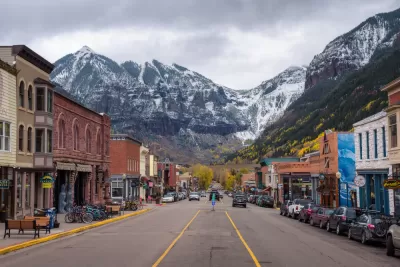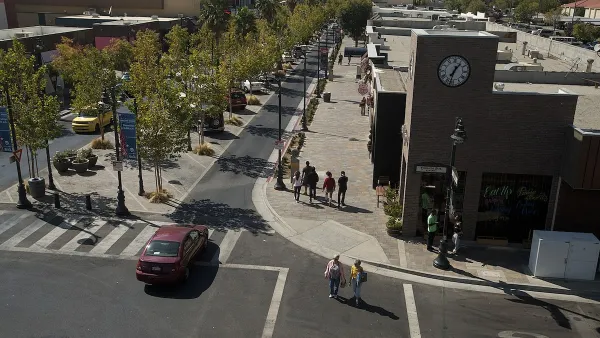A new book posits that truly successful communities have a strong economic base and a firmly rooted sense of place.

A new book by William Fulton outlines a simple equation: “Place plus prosperity equals a successful community.” According to an article by Alan Ehrenhalt in Governing, Fulton’s book examines the “subtle relationship between wealth and sense of place.” Many American communities, Ehrenhalt argues, have one or the other, but not both.
For Fulton, “A fully realized city needs to contain all the benefits of an integrated urban existence: close proximity of its citizens to the fulfilment of their ordinary human needs, the ability to walk and bike everywhere, an efficient transit system and a rich tapestry of everyday urban life.”
Ehrenhalt writes, “What is crucial on the prosperity side, Fulton believes, is a business base that builds on the tenets of place that lie beneath commercial prosperity.” Meanwhile, “The sense of place can be, and most often is, the product of a slow process of evolution. Or it can result from an intense desire to create something that did not exist before.”
Ehrenhalt provides examples from around the country: built-from-scratch cities like Las Vegas, sprawling suburban landscapes like Southern California, and former industrial powerhouses like Pittsburgh that have reinvented themselves for a new economy. While many places haven’t yet achieved Fulton’s vision, Ehrenhalt writes that the experiments happening in cities and towns all over the United States shows that identity and prosperity can go hand in hand.
FULL STORY: Place and Prosperity: An Urban Success Formula

Maui's Vacation Rental Debate Turns Ugly
Verbal attacks, misinformation campaigns and fistfights plague a high-stakes debate to convert thousands of vacation rentals into long-term housing.

Planetizen Federal Action Tracker
A weekly monitor of how Trump’s orders and actions are impacting planners and planning in America.

In Urban Planning, AI Prompting Could be the New Design Thinking
Creativity has long been key to great urban design. What if we see AI as our new creative partner?

King County Supportive Housing Program Offers Hope for Unhoused Residents
The county is taking a ‘Housing First’ approach that prioritizes getting people into housing, then offering wraparound supportive services.

Researchers Use AI to Get Clearer Picture of US Housing
Analysts are using artificial intelligence to supercharge their research by allowing them to comb through data faster. Though these AI tools can be error prone, they save time and housing researchers are optimistic about the future.

Making Shared Micromobility More Inclusive
Cities and shared mobility system operators can do more to include people with disabilities in planning and operations, per a new report.
Urban Design for Planners 1: Software Tools
This six-course series explores essential urban design concepts using open source software and equips planners with the tools they need to participate fully in the urban design process.
Planning for Universal Design
Learn the tools for implementing Universal Design in planning regulations.
planning NEXT
Appalachian Highlands Housing Partners
Mpact (founded as Rail~Volution)
City of Camden Redevelopment Agency
City of Astoria
City of Portland
City of Laramie




























